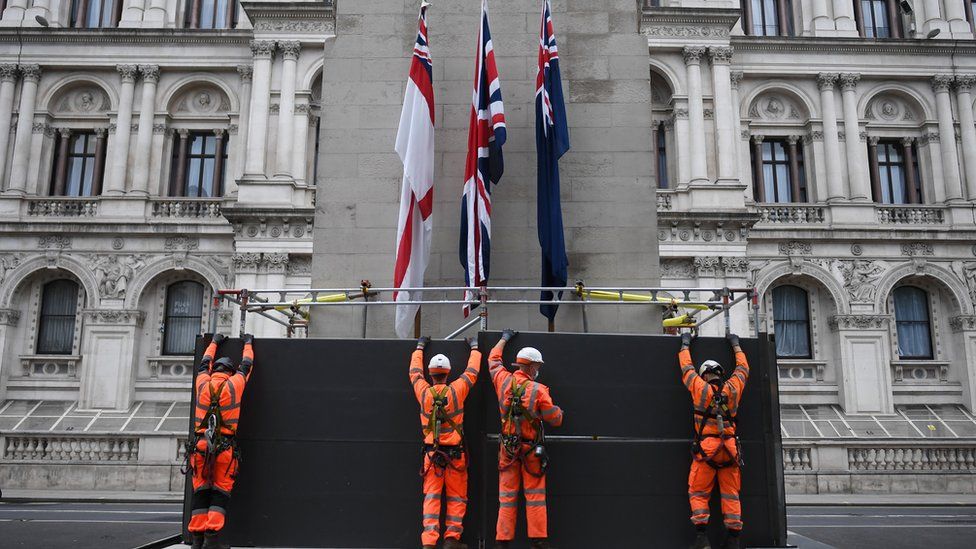mookiemcgee wrote:I was more or less with you on the first post but I'm not really with you on this one. While I don't think those who say their is systematic racial bias in the USA have an easy case to make, there are at least some concrete examples of systemic racial bias. The main one I see pointed to most often is 'redlining'. Do you believe redlining is fake news, or what's your position on that subject?
Redlining is considered illegal, and I don't agree with it on a racial basis. I haven't looked into redlining much, but if Mortgage Companies/Banks don't want to grant loans from specific neighborhoods, I see this as more of a financial issue more than a racial issue. Again, not that up to speed on all of the implications redlining has. Maybe you could point me in the right direction where I could learn more about this topic, or what your arguments are on the topic.
mookiemcgee wrote:"What about the fact that black people commit more violent crimes, and therefore have more violent encounters with law enforcement?" This is a chicken and egg argument imo. Both sides will point to the 'over' incarceration of African Americans in their arguments, and both would see the reasons for this differently. Areas that have alot of police presence will discover more crime than areas where there is a lax/loose policing.
You could make the argument there is more police because there is more crime committed in those areas. Chicken and egg, indeed. However, my point was more in questioning
why more violent crimes are committed. Is it response to police or is it more of a culture issue? I think this is the question we really have to answer. I would lean more to the argument of needing a culture change more than reducing police's numbers (while I DO think we need some sort of police reform, especially in the most densely populated cities). A larger police presence (and here, I'm referring to cities with more police officers per capita) doesn't necessarily equate to more crimes being committed. I would say the larger police presence is in response to more crime, not necessarily that there is more crime in response to a larger police presence.
mookiemcgee wrote:If your premise here is blacks are more predisposed to commit crimes, then I'm sure you can point to some statistics from 'majority black wealthy neighborhoods' having really high crime rates compared to wealthy white neighborhoods in the same zip but the stats don't support that. Areas like Ladera Heights, have similar (or lower) crimes rates to 'the rest' of Beverly Hills. The real trigger to crime is poverty, not race. There are some very strong arguments that are worth considering about how African Americans have for generations had a harder time escaping poverty (here is where things circle back to redlining and policies like it)
My premise is not that black people have a more predisposition to crime. Wealthier neighborhoods do have lower crime rates, indeed. I would agree that poverty is more of a determining factor. However, I would make the argument that poverty is not the most important determining factor, but instead more based on the choices that individuals that live in more impoverished areas of cities and areas of the country. I'll speak more on this below.
mookiemcgee wrote:"What about the fact that close to 70% of black children are raised by single parents, and don't have the support of both a mother and father to help teach them the difference between wrong and right?"
The African American community would point to this and say they are raised by single parents because the dad is in jail, maybe for something incredibly minor and getting 10 years because of mandatory minimums which have disproportionately affected them as a minority community.(Again in their minds and example of systemic racism in both policing and in society/banking/gov't.)
That is a criticism that is definitely worth being talked about. I'm not totally up to speed on every minor charge that has lead to a lengthy sentence, and I'm sure that there are some that have been unjustly overcharged. However, I don't see this to be a racial issue, as all ethnicities have cases that are overcharged. And again, we reach the chicken and the egg because you can say that being overcharged leads to more crime by the younger generation or that more crime gives the way for more overcharges to occur. So I ask myself the question
why are fathers not present in the home, and is the majority based on overcharges or a cultural divide where fathers do not wish to help raise their children?
mookiemcgee wrote:I'm not saying all the AA community arguments are rock solid, and I'm not saying any of your arguments are dead wrong... but you are a reasonable and intelligent person and you should at least consider that the very high incarceration rates of AA people isn't solely because they are commit more crimes but rather that they are arrested/prosecuted more frequently for the same behaviors that wealthy folks aren't. The answer falls somewhere in between, where maybe there is more crime in their neighborhood because of poverty but the police in some cases do consciously or unconsciously make that very association that blacks are more likely to commit crimes or hate the police or whatever and therefore treat them more harshly than they might a white kid in the suburbs. I digress a bit here, because I sort of see all of this as a big missed opportunity with what going on. Instead of saying pov't begets crime, and blacks have been stuck in a pov't loophole, this whole thing has turned into cops are bad, and cops and blacks hate each other... which is both unproductive and frankly bad for all Americans (blacks,cops,75 year old white antifa protesters

)
Here is where I get more ethical than more statistical. If we completely accept the argument that there is over-incarceration among the black community, and decide to shorten sentences for the people who commit these crimes, would this change the crime rate at all? Would this decrease the percentage of families raised by a single parent? Unfortunately, I don't think there is a number or statistic on what the future would be if this were to happen.
This is mainly why I see this is a cultural issue more than a racial one. There are three main key life choices that extremely increase any individuals chances to not be impoverished in your lifetime:
- Graduate High School, or get your GED
- Waiting to get married until you are out of your teens and/or not having children out of wedlock
- Having a full-time job
I understand the last point may be the hardest to complete, but these three key choices people make can greatly improve the chances of getting out of poverty, or at least starting the process of building generational wealth. I personally would add a
fourth point on not being in debt/getting out of debt/not spending money on garbage you don't need. Lol. These main key choices are what help strengthen the family component of our society, and I don't see lesser over-incarceration necessarily fixing the issue, culturally.
mookiemcgee wrote:On a tangent of sharing my own opinion, I'm pretty solidly against the federal gov't doing much of anything about all of this. Policing isn't (for the most part) and shouldn't be (Imo) a federal issue. I think qualified immunity is one of the few things that could have my support if they wanted to take a look at this at the federal level, but most policing issues are local/state issues that require local/state solutions. Personally I don't really support the national registry idea for cops with complaints about them, though I think that is going to be the first thing that gets passed in regards to all this.
To a certain degree, I agree, this should definitely be more of a State's issue than a Federal issue. However, when you have things like CHAZ going on, it makes it hard to completely say it's a State's issue if the State is complicit and allows for certain individuals to break its laws but not others.


